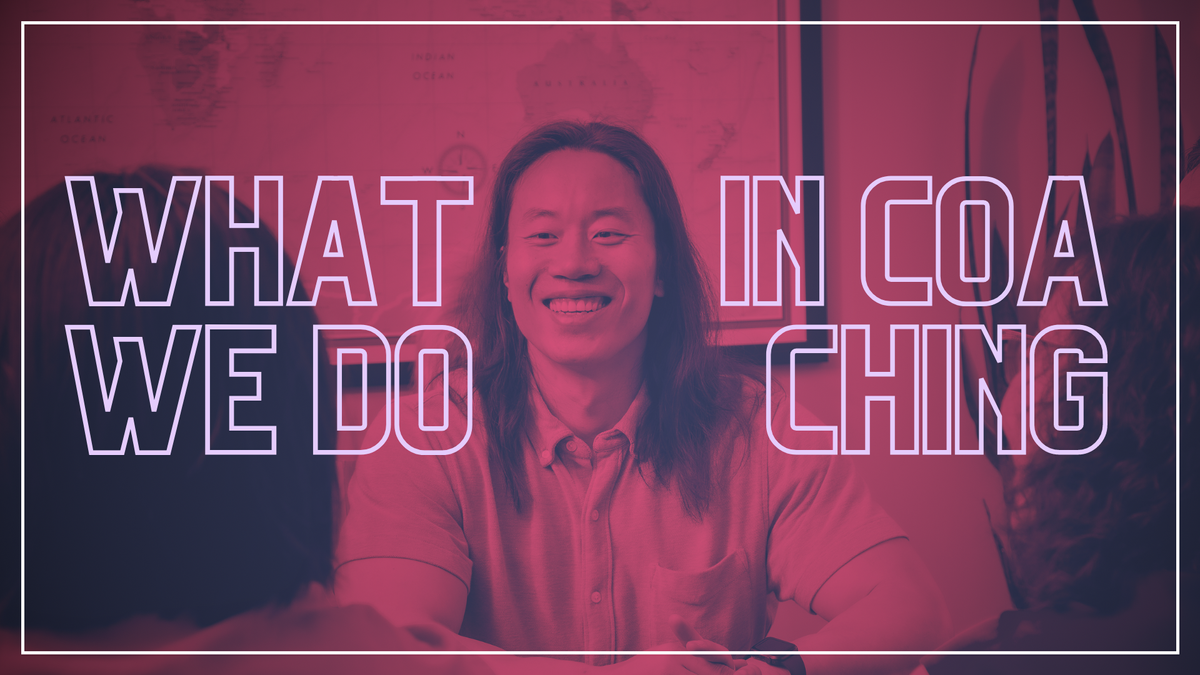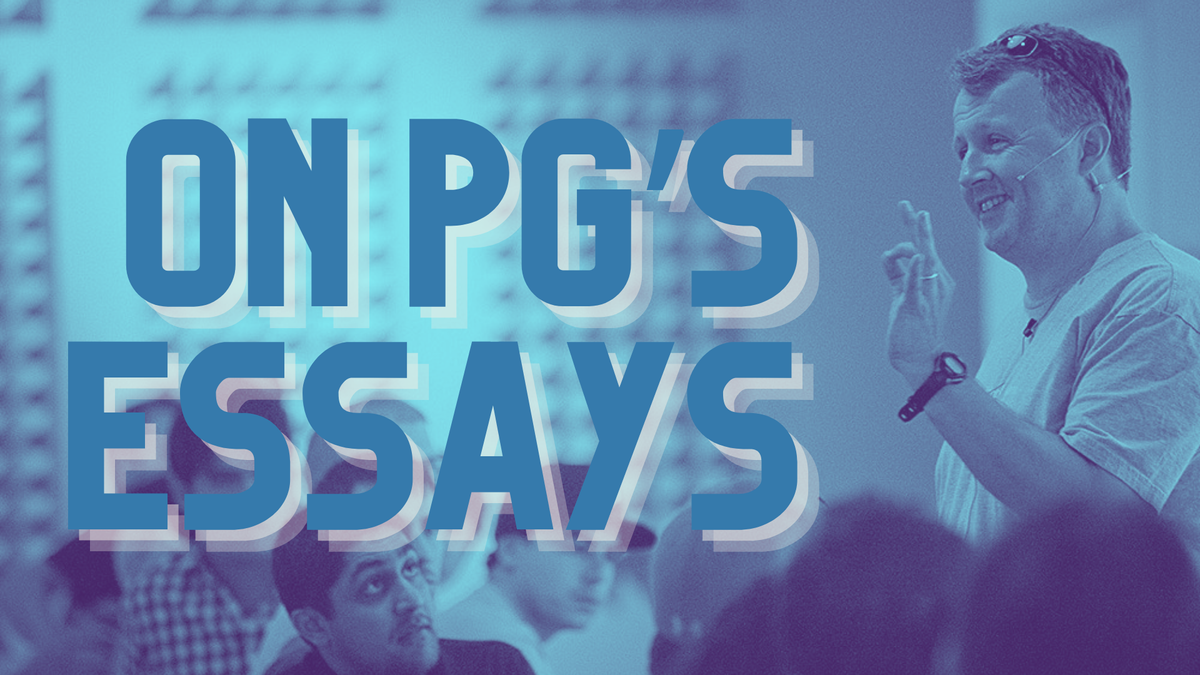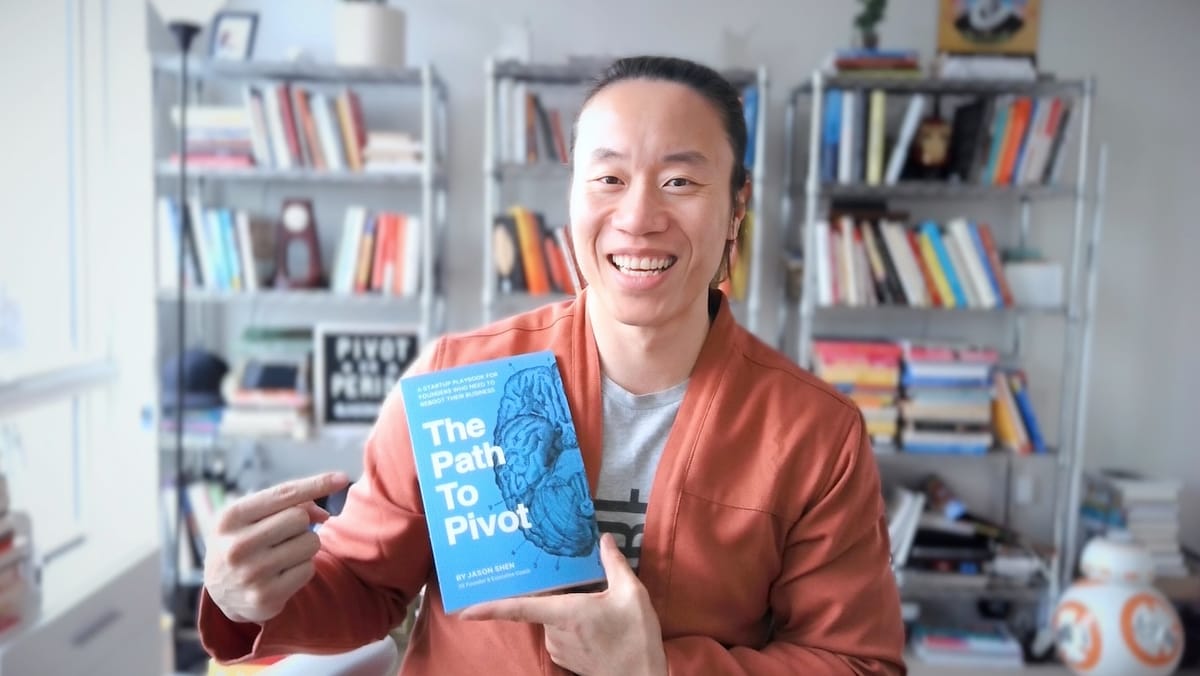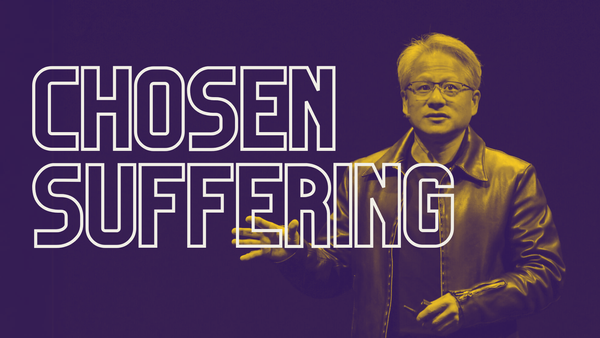A few weeks ago there was a talk by Jensen Huang, cofounder and CEO of NVIDIA which made the rounds on Tech Twitter.
The company—which serves at the backbone for many AI computing activities—was founded 31 years ago, and has had very modest growth trajectory for most of its life. But with the advent of first cryptocurrency and then generative AI, revenues have skyrocketed in its third decade and the company is now worth 2.2 trillion dollars—more than Meta, Amazon, and even Google.
Suffice to say, Huang has been getting the spotlight by many institutions and organizations.
The part that many people stuck onto was this 100 sec segment where he talks about idea of pain and suffering "with glee."
"Greatness is not intelligence. Greatness comes from character. And character isn't formed out of smart people. It's formed out of people who suffered." — Jensen Huang
That pain and suffering quote is what a lot of people dialed into (mostly positively, sometimes negatively), but I think it's what he says earlier that's interesting.
He starts the clip by saying that one of his great advantages is that he has very low expectations. And that high expectations—the idea that you should succeed—tends to lead to low resilience.
He never exactly defines what low resilience means, but it seems to mean an inability to move forward in the face of setbacks, failures, and hardship.
In other words, with high expectations comes a low tolerance for pain and since pain leads to resilience / character and character leads to greatness, this means many of the "best and brightest" don't end up achieving greatness
Here's the thing though:
Pain and suffering don't automatically lead to character or resilience.
In the INJUSTICE series, Superman becomes evil after the Joker tricks him into murdering his pregnant wife Lois Lane. The Joke explains that while Batman is a challenge to torture, with Superman, it's too easy.
This is Superman's lack of resilience coming back to bite him. It's his villain origin story—the traumatic event that turns an otherwise noble person into a monster.
This is why I talk about resilience being a skill—it's something that is learned.
You can face a setback or struggle and conclude that:
- Things are rigged against me / us
- I'm not good enough to succeed in this thing / anything
- The best way to protect myself is to never try anything
- You have to sacrifice too much to reach success and it's not worth it
This would not be lead to character growth!
Instead you have to develop a more productive mindset around setbacks and struggles that allow you to experience growth and not get traumatized.
- Setbacks and struggles happen to everyone
- Failing at a specific task or project does not make a failure
- I can learn from mistakes and do better next time
- There can be meaning and moments of joy even when working very hard at something
Beyond that there are those who would argue that we overly fixate on suffering and that this obsession is unhealthy. That this mindset leads to self-flagellation and unnecessary pain and hardship in the world. That we can seek joy and lean into what is easy.
I think there are merits to that argument. Someone with a short stocky build and loves lifting heavy weights should become a powerlifter, not a basketball player (even if that's where they would suffer more).
Much of success and happiness in life comes from doing more of what comes naturally to you, and angling that in a way such that it leads to the outcomes you want.
But there's still something missing. Because some amount of suffering is unavoidable. Meaning no matter what you choose to do, you will experience struggle and setbacks on your path to your goal.
That's where chosen suffering comes into play.
The Third Way: Chosen Suffering
Perhaps the biggest take I have on the Jensen Huang pain and suffering thing can be expressed through this meme I made.
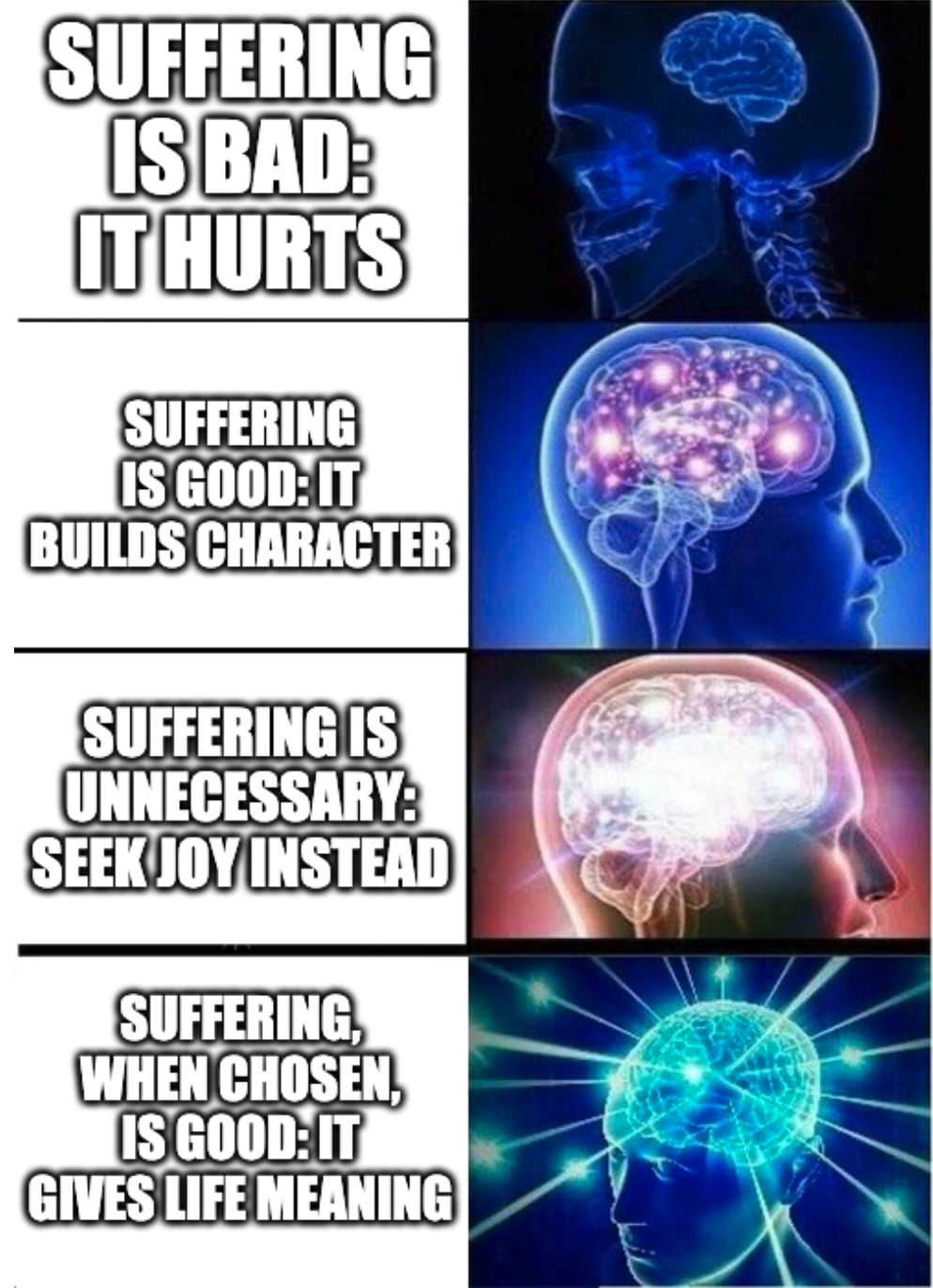
Suffering isn't just purely bad or purely good, or something that can be substituted with joy all the time.
Instead it is finding the suffering that you can make the free choice to bear, that leads to a meaningful life.
- If you want to build a successful company, you will need endure the suffering of rejection, doubt, and constant highs and lows.
- If you want to have a shredded body, you will need to endure the suffering of dessert deprivation, the effort of moving your body (or the financial expenditure of cosmetic interventions)
- If you want to raise a happy family, you will need to endure suffering of slowed professional advancement and personal pleasures—watching colleagues get ahead.
- If you want to avoid the discomfort of stretching yourself very much, you will need to endure the suffering of FOMO, wondering what you could have been, and the lack of freedom that comes with an undeveloped skillset.
As economists say, there is no free lunch.
But it is by enduring that suffering that you assert to yourself and the world that these other objectives are what you value. And look, like all things, there is risk. You may pay the very real price of your chosen suffering, and still not get what you want in the end.
But that risk of the unknown is part of the suffering you choose. Some careers, some opportunities are riskier than others, and usually have more significant payoffs.
You are guaranteed nothing good in life.
You can only be assured of suffering.
So make sure you choose wisely.
—Jason

How I Can Help You
🧢 Executive Coaching: 1:1 coaching for outlier founders & executives that unlock transformational growth over 4+ month engagements (schedule a call)
📘 The Path to Pivot: A playbook for startup founders who want to reboot their business and get a second chance to swing big (get a copy)
🛠️ Participatory Workshops: Interactive seminars designed to learn and practice crucial skills for navigating complex transitions—storytelling, emotional intelligence, experimentation and more.
🎤 Keynote Talks: High energy presentations that challenges audiences to dream bigger and act bolder in the pursuit of excellence.
Coming soon: Templates, exercises, and other low-cost ways to build resilience and develop your outlierness.
Recent Issues
